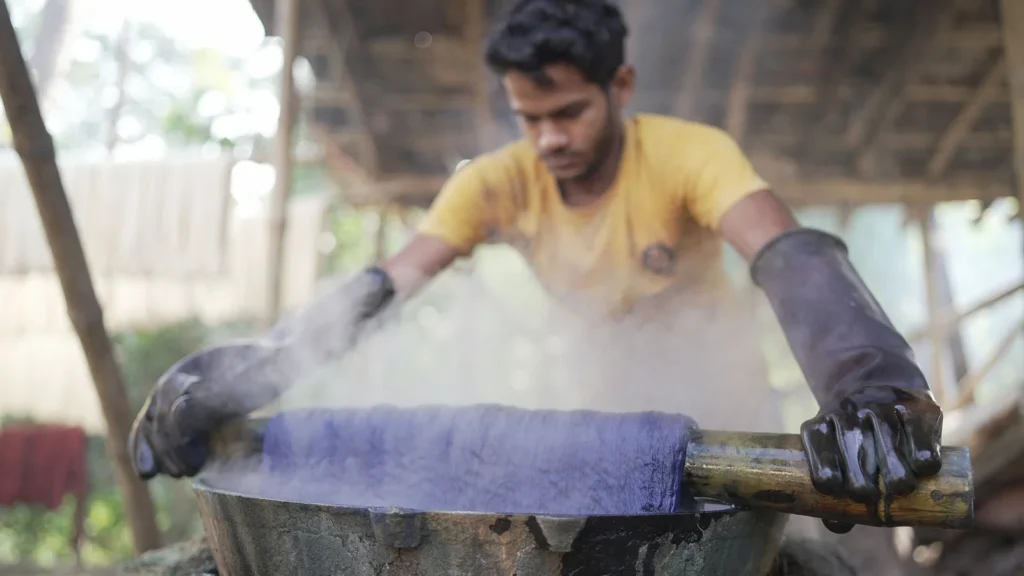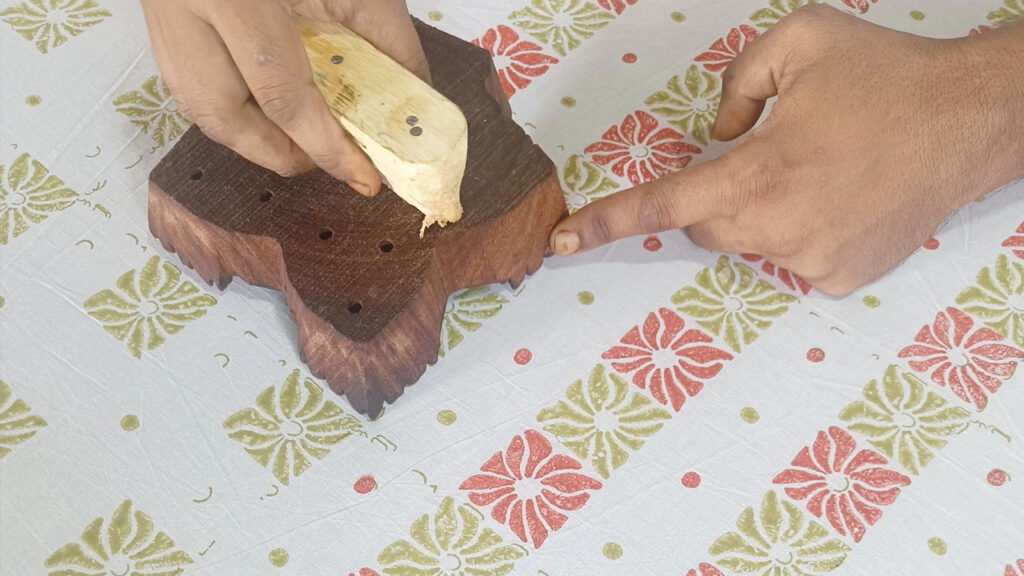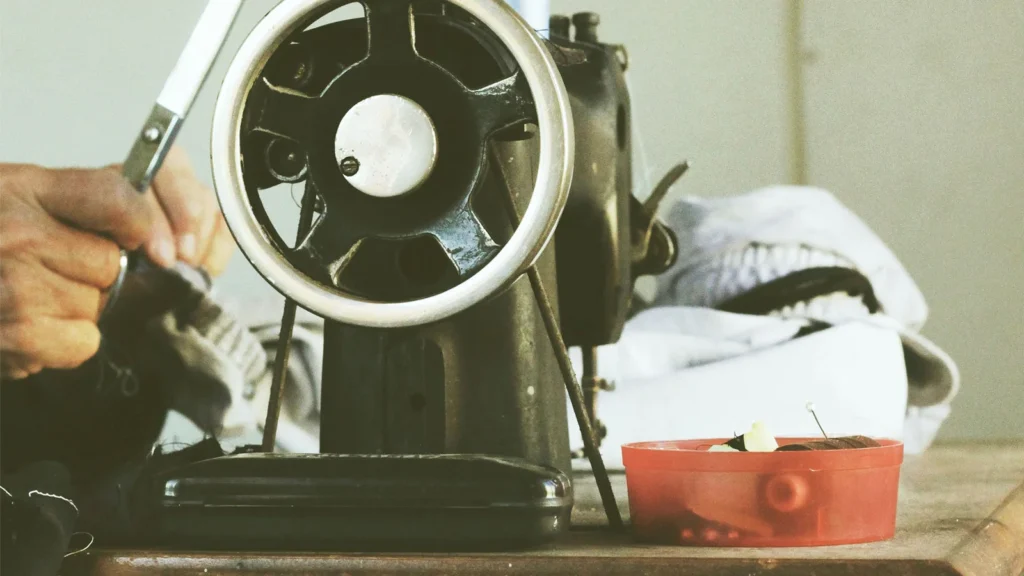Process

Raw Material
In line with our organizational policy, our textile production journey begins right at the farming ground. We maintain direct relationships with silk and cotton farmers, allowing us to closely monitor the extent of organic and traditional farming practices. This approach also ensures that fair compensation reaches the farmers by eliminating middlemen.

Ginning & Spinning
Kabira Textile emphasizes traditional hand ginning and spinning to avoid electricity use, preserving the integrity of cotton fibers and creating unique yarn textures. This approach supports sustainability and honors the craftsmanship of our artisans.

Yarn Dyeing
Kabira Textile places special emphasis on natural dyes and traditional Indian dyeing techniques. Even when chemical dyes are used, we take great care to ensure that the water involved in the process is reused efficiently.

Warping
Kabira Textile follows the traditional Indian hand warping technique using the rhythmic drumming process. Skilled artisans wind yarn around a frame, maintaining perfect tension and even distribution. This method enhances yarn quality and consistency, producing textiles rich in cultural heritage.

Weaving
At Kabira Textile, we exclusively use traditional Indian handweaving techniques that require no electricity. We collaborate with artisan clusters across India, appreciating their unique geographical crafts and supporting them by blending their traditional skills with market demands and innovative ideas.

Finishing
At Kabira Textile, we use traditional natural ingredients for the final washing of our fabrics, ensuring a zero discharge of hazardous chemicals. We are committed to sustainability by employing the oldest forms of bleaching, including the use of cow dung natural bleach.

Surface Crafts
At Kabira Textile, after weaving, we enhance our handwoven textiles with traditional Indian surface embellishments such as embroidery, hand block printing, and tie and dye. We always emphasize the use of natural dyes throughout this process.

Tailoring
At Kabira Textile, garmenting and creating other textile-based finished products are essential steps in our process, making tailoring vital. As advocates of sustainability, we avoid factory setups for tailoring. Instead, we empower individuals to establish tailoring units at home. Remarkably, 80% of our tailors are women who have become full-time tailors at home while continuing their roles as part-time homemakers.
